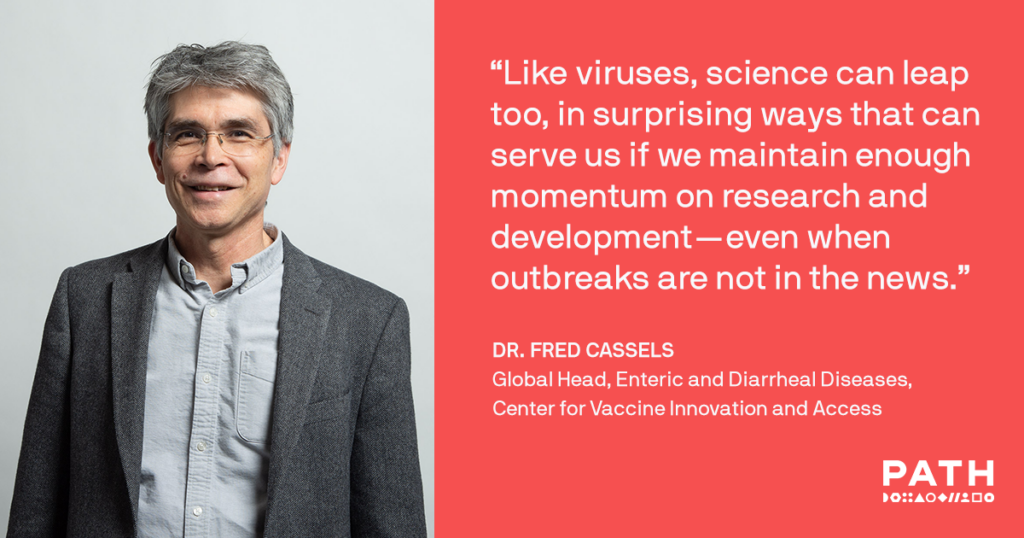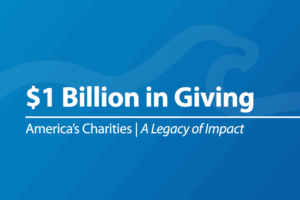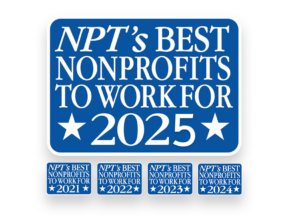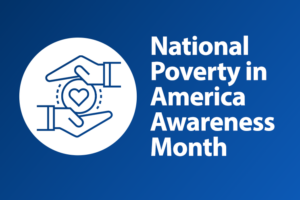Hope Randall | April 2, 2020
Why the COVID-19 Pandemic is Not a Surprise
To combat COVID-19’s impact on communities now, and prevent and prepare for similar outbreaks in the future, America’s Charities has partnered with Feeding America and PATH. This guest post from PATH (originally published here) demonstrates some of the ways PATH is responding to COVID-19 and learning from it to prevent similar outbreaks from happening again. Learn more about PATH’s work at www.PATH.org.
Not “if” but “when”
For researchers like Dr. Fred Cassels, who leads the Enteric and Diarrheal Diseases team at PATH’s Center for Vaccine Innovation and Access, the emergence of a new strain of coronavirus comes as no surprise.
As with influenza, he explains, there are hundreds of strains of coronavirus, most of which infect only animals. Milder variations can lead to the common cold. But other strains have significant mortality rates, such as severe acute respiratory syndrome (SARS) at about 10 percent and Middle East respiratory syndrome at approximately 35 percent.
The SARS outbreak of 2002–2003 was fortunately contained within seven months. The rapid suppression also meant that funding and priorities drifted elsewhere. In 2004, Dr. Cassels joined the National Institute of Allergy and Infectious Diseases (NIAID) to manage the portfolio of projects that sprung up in reaction to the outbreak. He was discouraged by the lack of momentum to continue learning about the science of coronaviruses and what it would take to produce and fully test a vaccine: “I remember saying to the team, ‘It’s not if there’s another outbreak, but when.’”
Staying one jump ahead
Trends such as climate change, urbanization, and rapid international travel form an ideal breeding ground for infectious disease outbreaks. But Dr. Cassels insists that, from a scientific perspective, there’s reason for optimism—if we commit to learning from data.
He draws on his experience with SARS. During that outbreak, NIAID had a jump start on its response because of previous research findings on animal coronaviruses (uncovered before they jumped to humans) and on the strains known to cause the common cold in humans.
“We didn’t need to start from scratch,” Dr. Cassels says. “Like viruses, science can leap too, in surprising ways that can serve us if we maintain enough momentum on research and development—even when outbreaks are not in the news.”
While COVID-19 is a new strain, it’s a familiar virus. Dr. Cassels predicts that the earlier work on SARS vaccines will shorten the timeline for developing one to address COVID-19.
Vaccines and other strategies to slow outbreaks
PATH is heartened by the global funding that has been committed to accelerate development of a vaccine targeted at COVID-19. There are still many unanswered questions about this new strain, but Dr. Cassels suggests that we know enough about the molecular building blocks of all coronaviruses to explore, for example, a universal coronavirus vaccine, much like PATH’s pursuit of a universal flu vaccine.
With the work on vaccines under way, tried and true public health tools will help slow the spread and severity of outbreaks: surveillance, tracking contacts of patients, isolating suspected cases identified at airports and transportation hubs, and treatment. Ultimately, that’s how the global community makes strides in prevention—by drawing upon both scientific expertise and public health know-how. It’s the hallmark of PATH’s work: harnessing diagnostics, treatments, vaccines, and strengthening health systems to protect communities from disease.
At PATH, we believe innovation—whether in surveillance, diagnostics, behavior change, systems strengthening, or vaccine development and testing—is how we tackle this outbreak and others like it.
“Building upon a foundation of scientific inquiry is how we can get one step ahead of a disease,” says Dr. Cassels. “That’s how we use the power of science to its fullest capacity.”

Get Resources and Insights Straight To Your Inbox
Explore More Articles
$1 Billion in Giving: America’s Charities Reaches a Historic Milestone
A testament to the impact of mobilizing the power of giving. We have some extraordinary news to share. In 2025, America’s Charities crossed a threshold that few organizations…
America’s Charities Named ‘Best Nonprofit To Work For’ For Fifth Consecutive Year
Washington, D.C. – April 1, 2025 – America’s Charities, the nonprofit that mobilizes the power of giving as a leading provider of volunteering, workplace giving,…
Get Resources and Insights Straight To Your Inbox
Receive our monthly/bi-monthly newsletter filled with information about causes, nonprofit impact, and topics important for corporate social responsibility and employee engagement professionals, including disaster response, workplace giving, matching gifts, employee assistance funds, volunteering, scholarship award program management, grantmaking, and other philanthropic initiatives.





